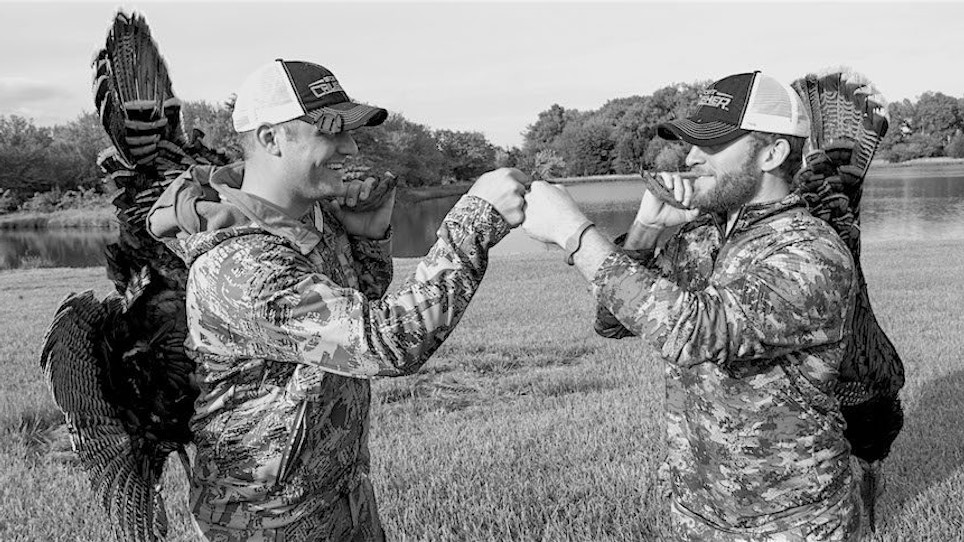The night before my first hunt in Dewey County, Oklahoma, Garrett, a hunting guide at Chain Ranch, already had scouted and planned for our Day 1 hunt prior to my arrival.
“So tomorrow morning I am going to set you up in a blind we put up for you today,” Garrett said. “It’s by a set of cedars. The deer like to travel here in the morning.”
This was a guided media hunt and, so far, I’ve made my way through a few of them. They are the absolute greatest experiences I have had as an outdoor writer. These hunts allow a writer to meet new people, try out some really cool products and ultimately share these experiences with readers.
Even with guided hunts, most hunters are ultimately in control. If you believe you would be better off sitting in a different stand or you want to spend the day scouting, the guides will allow for that. Since attending these media hunts, I’ve learned a lot about guided hunts. From these experiences, I’ve found outfitters are typically quite open to letting me choose my own path.
Truth be told, most of the hunting and fishing stories writers write rely on the success of the hunt, which underscores how critical an outfitter is in the relationship between product, writer and balanced reviews. The outfitter is central to making it all come together by creating the right situation so shots are ultimately fired and gear is tested in real hunting situations. Don’t get me wrong, a good writer can tell a story from every trip, but to really get to test some gear or for a show to film, often it require a successful hunt. And that success relies heavily on the work of hunting guides.
The hunting guides are the first ones up and the last ones to bed. You’ll find them scouting year-round, running trail cameras and logging countless miles on their personal vehicles. They are the kings of tracking downed game, know the best odds for each stand location or area to hunt. They represent the hard work behind many successful hunting stories you read about or view on outdoor networks.
The next time you read or watch a hunting story unfold, take a deeper look. Was this hunt on a ranch, through an outfitter or a guided hunt? Often, you’ll find many of these hunts have an outfitter’s fingerprints all over it.
No matter how a hunting story unfolds or where it took place, as an outdoor writer, I’ve learned that hunting guides are collectively a dedicated and hard-working group and often the hunting industry’s unsung heroes.
Best Practices for Your Next Guided Hunt
If you’re considering booking a guided hunt this spring or fall, take a look at these five tips from the article, "If You've Booked a Guided Hunt, Don't Be 'That Guy.'" The tips will guide you through the unspoken, hunt-camp etiquette most hunters and outfitters hold dear.
1. Be Ready at Dark-Thirty, No Exceptions
Nothing irks a hunting guide more than clients who continually show up late for a morning hunt. It doesn’t matter if you’re in a horse or truck camp — be ready when the guide says it’s time to go. These guides are leaving early to get you in position for a game encounter. They’ve put in the time, know the animals’ patterns and selected a morning departure time with thought and strategy in mind.
2. Respect Hard Work — and the Truck
Even though you’ve paid a lot of money for a guided hunt service, be polite. These guides work hard. They keep long hours and they don’t get paid a bundle for the overtime. Respect them for their hard work and be gentle to their equipment, even the truck. Most use their own gear and vehicles to get you into the game.
3. Don't Mope, Complain or Shun Gate Duty
Nobody likes a sourpuss, so leave yours at home. Be courteous. Be empathetic to difficult hunting situations like unpredictable or counter-productive weather patterns. Be engaged. Ask your guide about family, home and other work. Share some of your past adventures and be ready for any stalk or ambush with enthusiasm. And don’t be lackadaisical when it comes to opening and closing gates. Get out and get the job done.
4. Gut it Out
This requires getting into good shape before the hunt. Hunting is hard work and, even though your guide may be in better shape than you, give it your all. You may need to reach down deep to summit a ridge or tackle a long hike, but don’t complain and don’t wimp out unless it’s for unforeseen medical reasons.
5. Gratitude Reciprocates
Be appreciative if your guide has done a great job. Thank them personally and don’t forget to tip. Most guidelines indicate a tipping rate of 10 to 15 percent, and if you have a binocular or daypack a guide admires, consider adding it into the equation.






